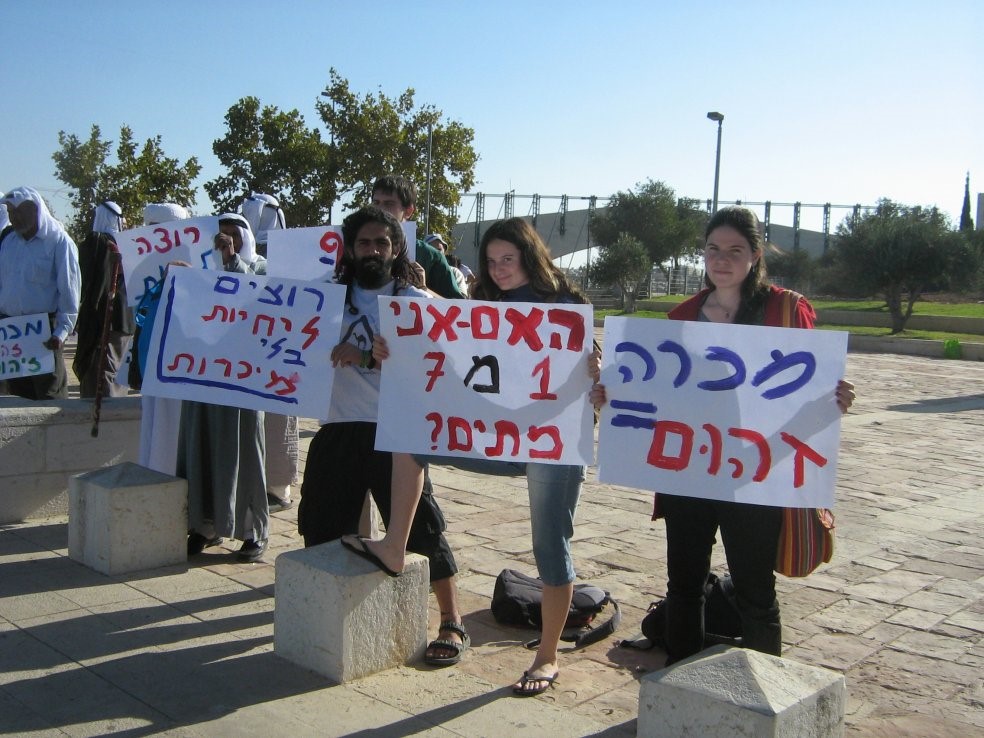Following a thorough consultation with an American environmental health expert, Health Minister Yael German is opposing a plan for a controversial pilot phosphate mining project outside Arad. MK Dov Khenin (Hadash) applauded German’s decision to oppose the construction of the pilot phosphate mine. “The ball is now in the court of Interior Minister Gideon Sa’ar,” Khenin said. “The interior minister must prove that he prefers the life and health of the residents of the periphery, in Arad and the surrounding areas, over the profits of phosphate tycoons.”

A demonstration in Jerusalem against the controversial pilot phosphate mining project outside Arad (Photo: NoBarir)
“I found more than one resident who feared for his or her health and the fate of the city, while Rotem plant workers feared for their workplaces,” German wrote in a letter to Interior Ministry Planning director Bina Schwartz. German was referring to an Israel Chemicals plan to conduct a pilot mining program at the Sde Barrir site near Arad in order to evaluate the environmental impacts of a full-scale mining operation at the site.
Prof. Jonathan Samet, a physician and epidemiologist at the University of Southern California, was thereby tasked with examining “the issue of mining at the Sde Barrir site and its expected health influences, and advise the Health Ministry regarding his stance on mining at Sde Barrir,” she wrote. In his 50-page report, “Human Health Considerations Related to the Siting and Operation of an Open-Pit Phosphate Mine at Sde Barrir,” Samet addressed the potential adverse effects and magnitude of harm that residents would face following the construction of a mine in their midst. Samet said he shaped his approach based on the initial charges of the Public Health Services director, Prof. Itamar Grotto, and on an examination of peer-reviewed literature, background documents and information gained during a January 2014 visit to the site. “Given the parameters for the pilot mining, the experience gained could not be used to provide assurance that there would be no adverse health consequences for full mining,” Samet wrote in his opinion.


